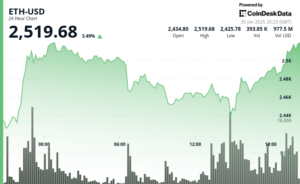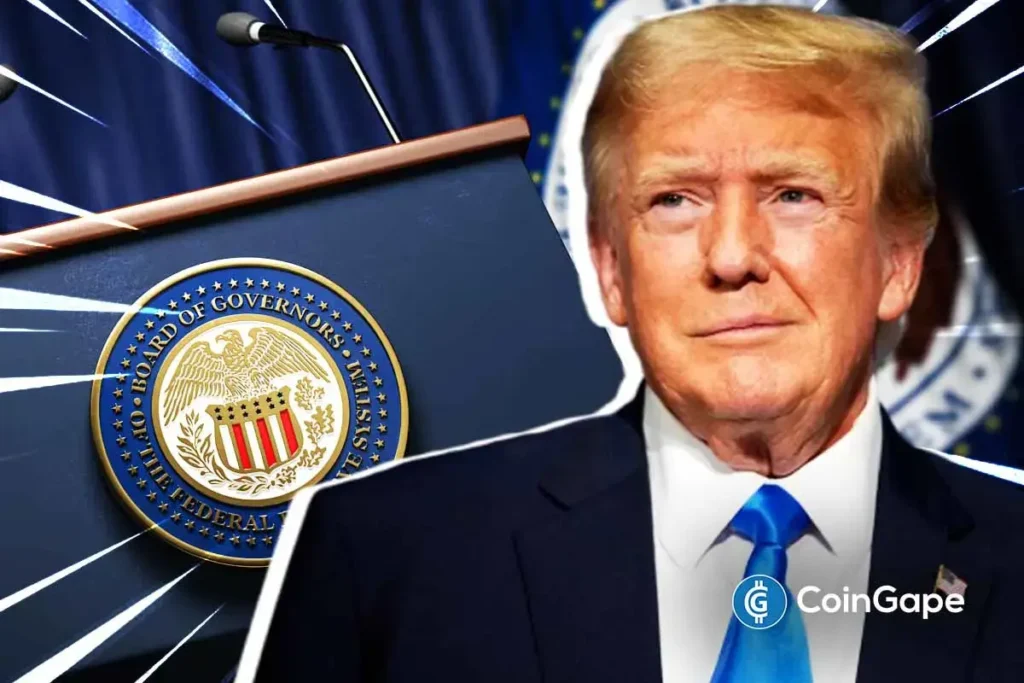Trump’s Pressure on the Federal Reserve: The Push for Lower Interest Rates
In recent weeks, former President Donald Trump has intensified his campaign to persuade the Federal Reserve to lower interest rates from the current benchmark of 4.25% to 4.5%. His latest tactic involved sending a handwritten note to Fed Chair Jerome Powell, highlighting how countries like Switzerland, Cambodia, and Japan maintain significantly lower rates, which Trump argues should be mirrored in the U.S. This push raises questions about the interplay between politics and monetary policy, and whether Trump’s public pressure could influence the Federal Open Market Committee (FOMC) in forthcoming decisions.
The Handwritten Note to Jerome Powell
Trump’s handwritten note, which was shared via the White House Rapid Response account, aimed to portray the necessity of lowering interest rates in light of global benchmarks. In the note, Trump articulated his dissatisfaction with Powell, suggesting that the Fed Chair’s actions have already cost the U.S. economy significantly. He expressed his belief that the Federal Reserve has been “too late” in past decisions and emphasized the need for a substantial rate cut. The president’s communication underscores his ongoing frustration with the Fed’s current policies, hinting at potential ramifications for Powell if he does not act in accordance with Trump’s expectations.
A Continued Push for Rate Cuts
Despite the FOMC’s decision to leave interest rates unchanged during its June meeting, Trump’s continual pressure is hard to ignore. He has gone as far as stating that if Powell is not willing to implement rate cuts, he should resign. Additionally, Trump has expressed a desire to nominate a new Fed Chair who aligns with his monetary policy vision, thus suggesting a proactive approach to reshaping the central bank’s leadership. With Powell’s term set to end in May of the following year, Trump is reportedly vetting candidates for a potential replacement, indicating a keen interest in reshaping the Fed.
Market Reactions and Future Expectations
While Powell has maintained a cautious approach regarding rate changes, traders are already starting to bet on a potential cut at the next FOMC meeting in July. Recent data from CME FedWatch shows a shift in market sentiment, with traders slightly reducing the likelihood of maintaining rates at the July meeting. The odds of a 25 basis point rate cut at the upcoming meeting now stand at around 21.2%. This shift in expectations signals that Trump’s public pressure might be having some influence on investor sentiment regarding the Fed’s future monetary policy.
Fed Officials Weighing Options
Even as Powell holds firmly to a wait-and-see strategy, some members of the FOMC, including Federal Reserve Governor Christopher Waller, have hinted at the possibility of a rate cut in the near future. This indicates that the Fed’s stance on monetary policy is not entirely inflexible and could be impacted by external pressures such as Trump’s campaign. If the FOMC does decide to respond to market expectations and external political pressure, it could signify a notable shift in how the central bank approaches interest rate policies.
Implications of Political Pressure on Monetary Policy
The intricate relationship between political figures and monetary policy has long been a topic of debate among economists. Trump’s direct influence on the Federal Reserve raises questions about the independence of the central bank. His recent actions reflect an increasing trend of political leaders seeking to shape monetary policy in ways that align with their economic frameworks. Should the Fed yield to such pressures, it might set a concerning precedent that blurs the lines between fiscal responsibility and political motivations.
Conclusion: A Contemplative Future for U.S. Monetary Policy
As Trump continues to press for interest rate cuts, the upcoming FOMC meetings will be vital in determining the trajectory of U.S. monetary policy. The tension between maintaining the Federal Reserve’s independence and responding to political pressures will be closely scrutinized in the months to come. Whether Powell and his colleagues will ultimately capitulate to Trump’s demands remains to be seen, but the ongoing dialogue highlights the complex and often contentious relationship between political leaders and financial authorities. As traders and economists alike watch closely, the implications of these interactions could have far-reaching effects on the U.S. economy and its global standing.
















